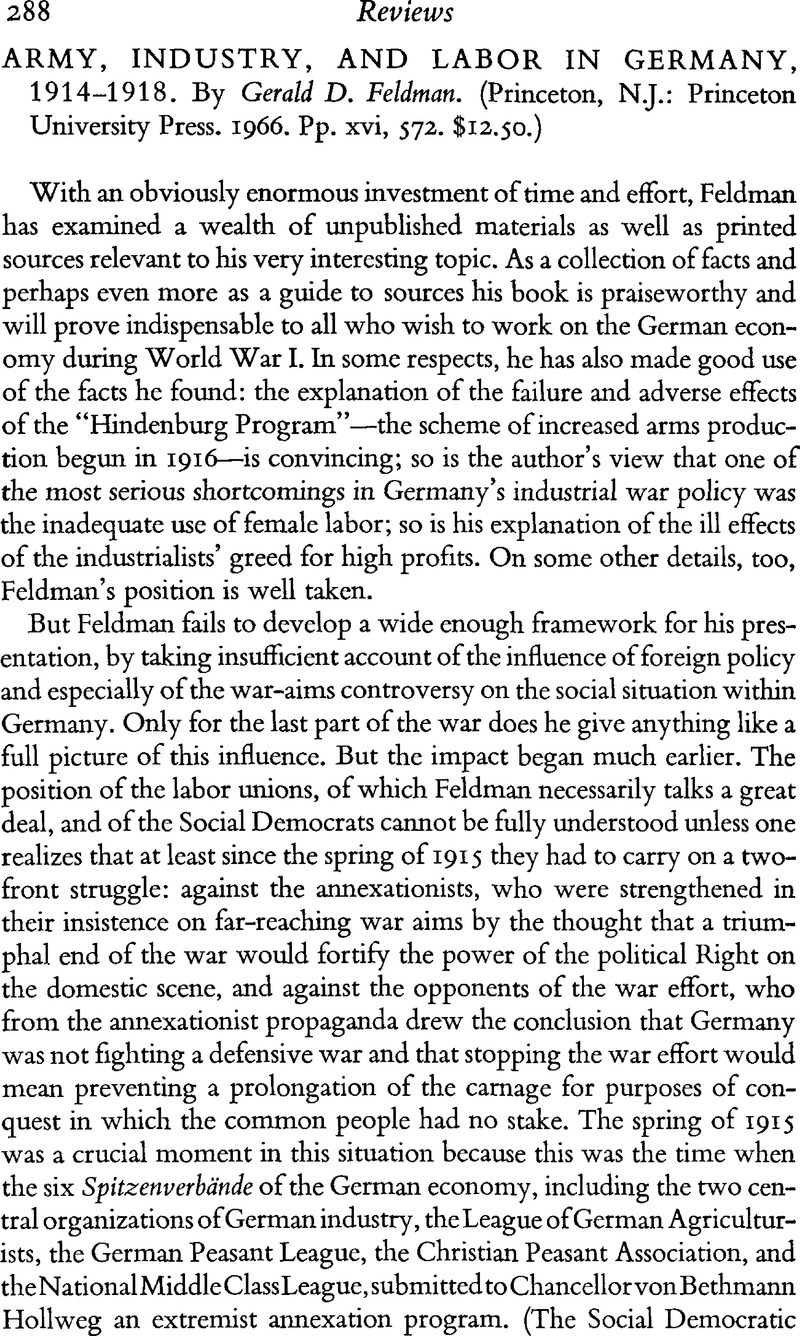No CrossRef data available.
Published online by Cambridge University Press: 16 December 2008

1. The text of both petitions can be found in Grumbach, S., Das annexionistische Deutschland (Lausanne, 1917), pp. 123ff., 429ff.Google Scholar
2. Hart, B. H. Liddell, A History of the World War 1914–1918 (Boston, 1935), p. 208.Google Scholar
3. Stampfer, Friedrich, Die vierzehn Jahre (Karlsbad, 1936), p. 35.Google Scholar
4. The two untranslatable terms were coined by Max Weber in “Politics as a Vocation”; for the context see Gerth, H. H. and Mills, C. Wright, eds., From Max Weber: Essays in Sociology (New York, 1958), p. 120. The Gesinnungsethiker is a moral absolutist, who cannot be persuaded to use impure means even to avert disaster; the archetype is the absolute pacifist who will not touch a weapon under any circumstances.The Verantwortungsethiker feels responsible for the effects of his acts or omissions, and justified in using even morally questionable or dangerous means if necessary to stave off calamities. Weber explains that a clear-cut option for either kind of ethic is impossible. The distinction has not attracted as much attention in American social science literature as its importance warrants.Google Scholar